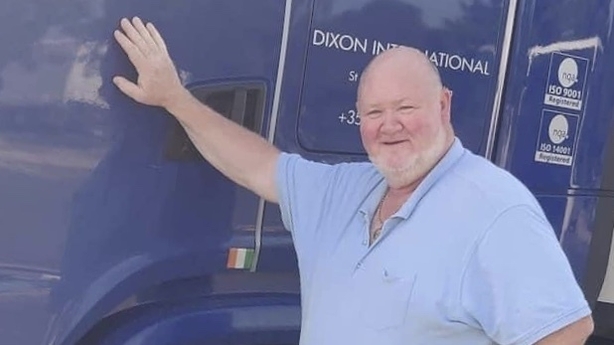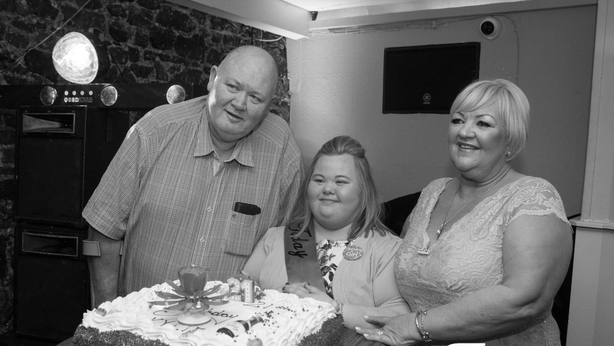A 26-year-old woman has paid tribute to her father following his death from Covid-19 earlier this year, and said the discovery of an old diary has helped her to get through his passing.
Paddy Reilly, a 56-year-old truck driver who lived in Co Kildare, died in April after contracting the virus.
His daughter Katie Reilly said he was a very hard worker and devoted to his family.
She described him as "always happy and always cracking jokes", and said everyone loved his company.
When he first got symptoms, he complained of itchy eyes, a sore throat and dizziness.
He went to hospital and was discharged the following day, but a few days later he deteriorated and returned to hospital, where he was placed on a ventilator.

Katie said that when she went to see her father she got an "awful fright" and that he did not look like himself.
She still finds it hard to believe he has died and the family are still in shock.
"I still think daddy's going to ring me. I’m still waiting for him to call".
Mr Reilly's family are very grateful to the local community in Co Carlow and the community in Athy in Co Kildare, for their support, but they say his funeral was not what they would have liked it to be.
Katie said that while they were lucky a local priest was able to conduct a short ceremony, she believes her father deserved a decent send off.

One of the things that has helped her is a diary belonging to her father that she found after his death.
Although it was a work diary, she said seeing his writing on the page is a great help.
It makes her laugh because his sense of humour is in the book, she said, and she feels as though he is in the room with her when she reads it.
Katie said that while she has so much to be grateful for, including the 26 years of her life that she had with her father, it is sad that he will not see her get married or have children.
Her family did take the virus seriously, she said, but it is not until it happens to you that you really feel it.
We need your consent to load this rte-player contentWe use rte-player to manage extra content that can set cookies on your device and collect data about your activity. Please review their details and accept them to load the content.Manage Preferences
Mr Reilly's family hope to commemorate his life next Easter, on the first anniversary of his death.
Read more:
Family urges gradual easing of lockdown after father dies from Covid-19
Dept notified of nine more deaths, nine additional cases
The latest coronavirus stories
The Chief Executive of the Irish Hospice Foundation said that many people are grieving in isolation in the wake of Covid-19 and need to be supported.
The IHF has launched Ireland's first national bereavement support line which has been set up in conjunction with the HSE.
Speaking on RTÉ's Morning Ireland, Sharon Foley said that as the country emerges from Covid-19 those bereaved by the virus or by any death will be feeling alone, isolated and disconnected.
She said that 9,500 people have died in Ireland since the Covid-19 pandemic hit and without the support of wakes or funerals or human contact, people are suffering.
Ms Foley said that there are many ways to grieve and many will require others to listen and to provide human support and connection.
She said that the IHF would like to see further easing in restrictions at funerals and visiting allowances at nursing homes to further support the dying and the bereaved.
She said that the IHF lobbied hard to increase the numbers allowed at funerals from ten to 25, which was announced for Phase 2 of the Government's roadmap which came into force yesterday.
Ms Foley said further easing of these measures would be welcomed.
She said that easing visiting restrictions at nursing homes and care homes would help people to get the most compassionate care at the end of life.
She urged people to keep in touch with those who are bereaved by phone, text or Zoom calls.
The support line will be staffed by IHF staff and volunteers.
The IHF support line number is 1800 80 70 77. It is available Monday to Friday from 10am to 1pm.
The bereavement support line is being supported by a national advertising campaign. Former taoiseach Enda Kenny voiced a broadcast advert for the service.







